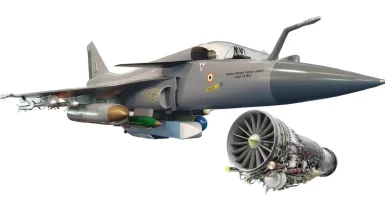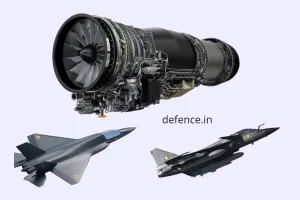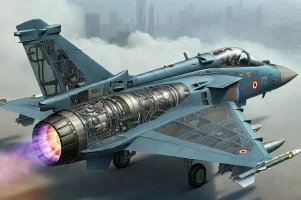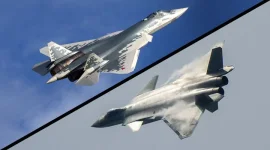- Views: 3K
- Replies: 20
A landmark engine technology deal between the United States and India, crucial for the nation's next generation of fighter jets, is facing uncertainty following cautionary remarks from a key adviser to US President Donald Trump.
Peter Navarro's recent statements have ignited concern within India's defence establishment over the future of the General Electric (GE) F-414 engine agreement, a cornerstone for the Tejas Mk2 and the Advanced Medium Combat Aircraft (AMCA) programs.
The controversy stems from a post by Mr. Navarro on August 18, 2025, which described India's pursuit of high-level technology transfer and domestic production as "dangerous."
He suggested that India's strategic relationships with both Russia and China could prompt a Trump administration to block the sharing of sensitive American military capabilities.
This has raised alarms about a potential cancellation of the agreement, forcing India to re-evaluate its options for powering its future fighter fleet.
Details of the Landmark Engine Agreement
In a significant step towards bolstering India's aerospace capabilities, GE Aerospace and Hindustan Aeronautics Limited (HAL) signed a Memorandum of Understanding (MoU) in 2023.The agreement involves the co-production of F-414 jet engines in India and includes an unprecedented 80% transfer of technology (ToT). This level of technology sharing is higher than that provided to even close US allies like South Korea for the same engine.
The deal, initially valued at around $1 billion, is designed to give India the ability to manufacture critical components, including single-crystal turbine blades and parts with advanced thermal barrier coatings.
However, recent negotiations have seen the cost increase by an estimated $500 million due to the extensive scope of the technology transfer. In response, HAL has established a Contract Negotiation Committee to assess the revised terms.
Despite the hurdles, HAL has publicly aimed to finalise the contract by March 2026, with the first engines scheduled for delivery by 2028.
US Political Climate and Strategic Concerns
Mr. Navarro's comments are seen as part of a broader American policy under President Trump to pressure India over its long-standing defence and energy ties with Russia.This policy was underscored in July 2025 when the US imposed a 25% tariff on certain Indian imports, accompanied by threats of "secondary sanctions" targeting India's continued purchase of Russian oil and military hardware.
Washington has consistently expressed apprehension about India's "transactional" foreign policy. Official data shows that Russia accounted for 36% of India's arms imports between 2019 and 2023, while Russian oil makes up 40-45% of the nation's crude imports.
The acquisition of the Russian S-400 air defence system remains a significant point of friction, which had previously exposed India to the risk of sanctions under the US's Countering America’s Adversaries Through Sanctions Act (CAATSA).
Financial Times report from late 2024 previously highlighted US hesitation to share the full intellectual property of the F-414 engine due to concerns that the technology could be compromised given India's close defence collaboration with Russia.
Historical Precedent and Future Risks
For India's defence planners, the current situation evokes memories of past disruptions.The indigenous Tejas Mk1 program faced severe delays after the US imposed sanctions on India following its 1998 nuclear tests. Those sanctions cut off assistance from Lockheed Martin, which was helping develop the jet's critical flight control systems, forcing India to develop its own technology from scratch.
A similar disruption to the F-414 deal would have a profound impact on the Tejas Mk2, a medium-weight fighter intended to replace the Indian Air Force's aging MiG-21 fleet.
The programme, which envisions the production of over 300 aircraft, is central to India's strategy of achieving self-reliance in defence manufacturing. Any halt or significant delay could jeopardise production timelines, currently set to begin in 2030, and escalate project costs.
With the GE deal in question, India is actively assessing alternatives. The domestically developed Kaveri engine, while showing progress, currently lacks the required thrust for advanced combat aircraft.
Consequently, India is engaged in discussions with other global partners.
Negotiations are underway with France’s Safran for technology related to the Rafale fighter's engine, and with Russia’s United Engine Corporation for its fifth-generation 177S engine, both of which were promoted at the Aero India 2025 exhibition.
However, pursuing these alternatives is also fraught with challenges, as a European partnership could face pressure from Washington, and a deeper engagement with Russia could invite further US sanctions.




